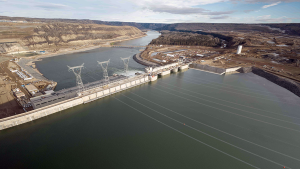The Independent Contractors and Businesses Association (ICBA) of B.C. is going to court.
The ICBA will be making a submission to the Supreme Court of Canada when the court hears the federal government’s appeal of an Alberta court’s earlier ruling against Ottawa’s Impact Assessment Act (IAA).
The IAA is a federal environmental law that enables it to regulate a wide range of industrial projects.
Ottawa and Edmonton see the legislation very differently.
The federal government says the IAA authorizes it to regulate projects if they have environmental effects, such as climate change and impacts on Indigenous territory and ecosystems that fall into its jurisdiction.
Alberta, on the other hand, says the IAA is an intrusion into an area of provincial jurisdiction. It asked the Alberta Court of Appeal to rule on the legality of the legislation. In a 4-1 ruling, the court struck down the act.
“Climate change constitutes an existential threat to Canada,” the majority wrote, but the federal environmental law “involves another existential threat…and that is the clear and present danger this legislative scheme presents to the division of powers guaranteed by our Constitution and thus, to Canada itself.”
But Ottawa is appealing the ruling, so it’s back to court. The appeal is scheduled to be heard on March 21 and 22.
The appeal has 29 intervenors – provincial governments, First Nations, environmental and industry groups, including the ICBA and the Alberta Enterprise Group – who will be making submissions to the Supreme Court.
ICBA president Chris Gardner says the association is an intervenor in support of the Government of Alberta.
Gardner says the association has more than 4,000 members in construction and resource development in B.C. and Alberta, so a lot of jobs and investment are at stake.
The IAA adds unnecessary confusion, complexity and expense to the approval process, and will end up making Canada less competitive, he states.
“The federal act is an incursion that slows down the regulatory and approval process, and Canada is already slow to approve resource projects,” says Gardner. “This country has been losing too many resource development opportunities. Alberta wants to develop projects, but the federal government keeps saying ‘no.’ It’s very frustrating.”
Catherine Brownlee, president of Alberta Enterprise Group (AEG), says the IAA allows the federal government to decide whether a large-scale provincial resource or infrastructure project should be permitted to proceed, and if so, under what conditions.
“In our view, while the federal government clearly has the power to undertake this type of comprehensive assessment process in relation to federally regulated projects, it does not have the constitutional authority to comprehensively regulate provincial projects in this way,” says Brownlee.
She says allowing the federal government to assess and regulate provincial projects is not only inconsistent with Canada’s constitutional division of powers, it will also lead to regulatory overlap, intergovernmental conflicts and jurisdictional uncertainty in the assessment and approval of large projects.
“In our view, the constitutional division of powers was intended to avoid these types of harmful consequences,” says Brownlee. “They have become increasingly common when both levels of government seek to exercise decision-making authority over the same project.”
Brownlee says AEG supports having comprehensive environmental assessments of large projects.
“We believe, however, that comprehensive assessments should be performed only once, by the order of the government that is directly responsible for the projects, whether that is the federal government for federal works and undertakings, such as inter-provincial pipelines, or the provincial government for provincial works and undertakings, such as in-situ oilsands projects wholly within a single province,” she says.
Other intervenors in the Supreme Court appeal are the Canadian Environmental Law Association (CELA), Environmental Defence Canada and MiningWatch Canada, but they are intervening in support of the IAA.
CELA lawyer Richard Lindgren, who is co-counsel for the trio, says his clients believe the IAA is constitutionally sound on the question of division of powers between the federal and provincial levels of government.
“It establishes an evidence-based process for gathering information and making decisions about the potential adverse effects of major projects on areas of federal jurisdiction,” says Lindgren.
Furthermore, he says, the legislation includes a mechanism for dealing with federal-provincial jurisdictional disputes.
“Where a project is subject to both federal and provincial environmental assessment laws, the IAA contains provisions that enable the establishment of a joint, integrated or harmonized federal/provincial review, also known as the ‘one project, one assessment’ approach.”











Recent Comments